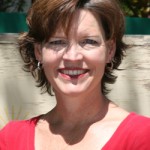The lampooned, ridiculed and feared water tax has returned from the dead-letter box. During the winter, the state Legislature held hearings on Senate Bill 623, which proposed a tax on local water bills to provide funds to disadvantaged communities that do not have access to safe drinking water.
Not only did the Association of California Water Agencies oppose the idea, the local water districts expressed their own opposition to the bill. The bill died in budget committee meetings.
As the legislative session nears its end on Aug. 31, SB 845 revives the idea of water tax revenues as a source of funds to assist disadvantaged communities install projects to ensure safe drinking water for their customers.
However, given the statewide opposition to tax water, this proposal asks people to voluntarily pay a water tax. By January 2020, the language of SB 845 states, “require a community water system with 200 or more service connections to provide an opportunity for each customer of a community water system to provide a voluntary remittance either as part of the customer’s regular water bill or by using a specified notification procedure, to advance the purposes of the fund.”
Unsurprisingly, ACWA has already expressed opposition to this “twist on the water tax.”
The association points out that requiring local water district to accept donations for the state could result in the need to alter their billing software and accounting system, and hire more staff to collect these proceeds.
ACWA also highlighted the Legislature’s 2018-19 budget committee rejecting the bill to impose a direct water tax.
It suggested that a more efficient means to collect a voluntary contribution to poor community water systems would be “… a new voluntary contribution fund check off to the California Form 540 and have it efficiently collected at a much lower cost by one agency at the state level — the California Franchise Tax Board.”
Further, in June, state voters approved Proposition 68, which authorized the state to borrow money for parks and water projects, including safe drinking water. And on the November ballot is Proposition 3, which would authorize borrowing specifically for these types of projects.
In finishing her Aug. 21 statement, ACWA Deputy Executive Director for Government Relations Cindy Tuck objected to the path SB 845 has taken in the past two weeks. She said, “No policy committee has taken public testimony on this new proposal. The proponents developed the proposed collection mechanism without the input of the thousands of community water systems that would be charged with implementing it.”










